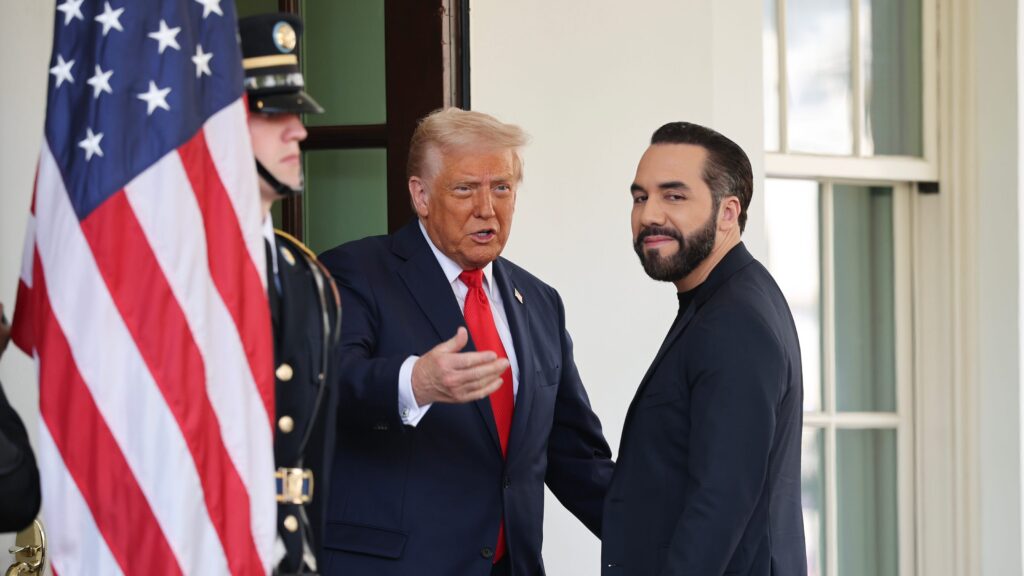President Donald Trump recently praised El Salvador’s President Nayib Bukele during a White House meeting, highlighting their mutual admiration. Bukele’s leadership in El Salvador, marked by a state of emergency since 2022 granting him broad powers to combat gang violence, has led to controversial mass imprisonments with minimal evidence. Critics express concern over the erosion of due process under Bukele’s regime, with thousands released due to innocence. Despite advocacy groups estimating a 4-6% wrongful imprisonment rate in the U.S., El Salvador’s high rate raises serious human rights issues, exacerbated by the harsh conditions in its prisons.
Trump’s affinity for Bukele’s authoritarian methods, evident in his eagerness to emulate them in dealing with illegal immigrants, is troubling. Their shared disregard for due process and court orders is exemplified in their defiance of the U.S. Supreme Court’s ruling to return a deported MS-13 suspect. The Trump administration, backed by Bukele, is sidestepping the court order, exploiting a lack of enforcement mechanisms. This move underscores Trump’s contempt for judicial oversight and aspirations for unbridled executive power.
The budding alliance between Trump and Bukele raises alarms about the erosion of democratic norms and the rule of law. Their shared affinity for authoritarian tactics and disdain for due process pose a threat to civil liberties and justice systems. As Trump continues to emulate Bukele’s strongman tactics, the implications for the U.S. legal system and human rights remain a cause for concern.

